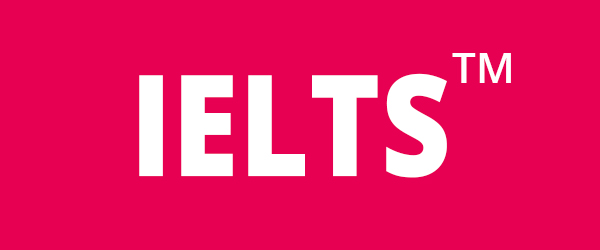What is IELTS?
IELTS, which stands for the International English Language Testing System, is a globally recognized English language proficiency test. With over 4 million test takers annually, IELTS is the world’s most popular English language proficiency test for higher education and global migration. The test is developed and administered by the British Council in collaboration with IDP Education and Cambridge Assessment English.
How does IELTS work?
IELTS is designed for individuals who wish to study, work, or immigrate to an English-speaking country, or for those seeking employment in a country where English proficiency is required. To cater to these different needs, IELTS offers two types of tests:
IELTS Academic
This test is intended for those seeking university admission, student visas, or certification of their English proficiency for professional organizations.
IELTS General Training
This test assesses English proficiency in a workplace context and is often used to demonstrate language skills when applying for employment in an English-speaking company or organization.

IELTS Test Detail in Nepal
Test Name: IELTS on Paper
Fee: NPR 31,500
Test Name: IELTS on Computer
Fee: NPR 28,800
IELTS Preparation Class
Course Name: IELTS Preparation ClassFee: NPR 9000 NPR 5,500
Free Unlimited Mock Test
- Test length: 2 hours and 45 minutes long.
- Test format: 4 sections, including Listening, Reading, Writing, and Speaking.
- The Listening, Reading, and Writing sections take place on the same day with no breaks in between.
- The Speaking section may be scheduled on the same day or up to 7 days before or after the other sections.
| Listening Sections: 4 Sections Timing: 40 minutes Total number of questions: 10 /section (40) Scores: 1 marks/question Type of questions: six | Writing Sections: 2 Timing: 1 hour Scores: based on various criteria Type of Questions: 6 under Section 1, 5 under section 2 |
| Reading Sections: 3 Timing: 1 Hour Total number of questions: 40 questions Scores: 1 marks/Question Type of Questions: 10 | Speaking Sections: 3 Timing: 11 – 14 minutes Scores: based on various criteria Type of Questions: General topic for part 1, specific questions on Part 2, further questions related to part 2 for part 3 |
IELTS Modules
This section evaluates your ability to comprehend ideas, recognize opinions, and follow the progression of an argument.
In this section, you are going to hear an audio that will play for 30 minutes and the audio will be divded into four parts. The kinds of conversation that you will hear in each part are as below:
Part 1: Test takers will hear a conversation between two people set in an everyday social context
For example, a conversation about travel arrangements.
Part 2: Test Takes will hear a monologue set in an everyday social context.
For example, a speech about local facilities or a talk about the arrangements for meals during a conference.
Part 3: Test takers will hear a conversation between two to four people set in an educational or training context.
For example, a discussion between a tutor and a student about a research project.
Part 4: Test takers will hear a monologue set in an educational or training context.
For example, a lecture on a specific area of study.
Question Types:
There are six major question types in the IELTS Listening Section:
- Form, Table, Summary, Flowchart Completion
- Matching
- Plan, maps, Diagram label Completion
- MCQs
- Short answer questions
- Sentence Completion
Major Strategies for the Listening Section:
- Read the instructions and notice required word count
- Read the Questions Beforehand and Understand the Context
- Be Careful about Keywords to identify what the speaker is talking about
- Be able to Predict the kind of word you need to listen for – Noun, Verb, Number
- Be aware of Synonyms and rephrases
- you should look at multiple questions at once
This section assesses your skill in organizing ideas and crafting a response accurately, along with your proficiency in using a diverse range of vocabulary and grammar. In this section, you are required to answer two essay questions which are also known as Writing Task 1 and Writing Task 2 in a duration of 1 hour.
About Writing Task 1
In Writing Task 1, test takers may be asked to describe facts or figures presented in one or more bar graph, Line graph, diagrams and others. It is recommended that Candidates should spend no more than 20 minutes on this task and should write 150 or more words.
Question Types:
Majorly, there are six question types in Writing Task 1.
- Bar Chart
- Line Chart
- Pie Chart
- Table Chart
- Process Diagram
- Maps
Please note that you can see a single figure-based question or multiple figure-based question in IELTS Writing Exam. The figures are going to be a combination from the above-mentioned charts.
Major Strategies for Writing Task 1
- Identify the type of diagram
- understand the topic of the question and study the diagram
- Identify the number of elements
- Further identify if the figure has a point of time or a period
- If the figure shows data at one point of time, mention high low points
- If the figure shows data over time, mention increase decrease
- Make notes for any trends, changes, developments, noticeable features, stages.
- Group information based on similar trends.
- Structure your essay and display grammatical range and lexical resources in your writing.
- Make sure you write an appropriate Overview, and do not mention data points in your overview.
About Writing Task 2
In Writing Task 2, the question is presented with a point of view, argument or problem and requires the Candidate to write an essay. The Candidate is required to write 250 words.
Question Types:
Primarily there are three broad categories for IELTS Writing Task 2 Questions.
- Opinion Question (This question type is further divided into three major types)
- Agree Disagree Question
- Discussion Questions
- Advantage Disadvantage question
- Two Part Question
- Problem Solution Question
Major Strategies for Writing Task 2:
- Identify the type of question
- Understand the topic of the question
- Note Key ideas
- Choose a position for your essay based on the notes generated
- Mentally organize your essay
- Structure your essay and display coherence, grammatical range and lexical resources in your essay
This section measures your ability to grasp the general meaning, main ideas, and details of a text, as well as understand the author’s inferences and viewpoints. In this section, you are required to solve questions from three different passages which can range from descriptive and discursive to academic and analytical.
Question Types:
- Summary, Note, Table, Flow Chart Completion
- True/False/Not Given, Yes/No/Not Given
- Matching Headings
- Matching Information
- Matching features
- Diagram Label Completion
- Sentence Completion
- Multiple Choice Questions
- Matching Sentence Endings
- Short Answer Questions
Major Reading Strategies:
- Surveying: Looking at a text very quickly beofre reading to get an idea of lay-out: title, pictures, graphs, headings which helps with prediction
- Skimming: Reading a text very quickly to get the general understanding and to activate your schematic knowledge
- Scanning: Reading a text with the specific purpose of extracting information such as number, facts, words etc.
- Reading for detail/ Close Reading: Reading a text in order to understand the more detailed meaning, and find the answer
- Inferring meaning: Reading a text in order to discover the writer’s opinions or feelings from the language and way it has been expressed or presented.
- Deducing meaning: Reading a text and working out the meaning of vocabulary from the surrounding context and information given
P.S. Some other strategies are to know how to approach the Reading Text. For example: Few question types such as Matching Headings and Multiple Choice Questions require you to both skim and scan to find your answers whereas A true false not given question can be done just by scanning for keywords without skimming the entire passage. Moreover, some question such as MCQs have answers in order of the questions while the answers for Matching Headings are not in order, meanwhile, for True/False/Not Given the answers may or may not be in order.
This section gauges your ability to communicate opinions and information on everyday topics and common experiences, and how well you express and justify your viewpoints. In this section you are required to talk to the interviewer for aroound 11 to 14 minutes.
Question Types
The IELTS Speaking section is divided into three major parts.
About Part 1:
In Part 1 the examiner asks about personal everyday topics and the questions revolve around your experiences.
KNOW THE VOCAB TO TALK ABOUT EVERYDAY TOPICS
- Work
- Study
- Hometown
- Art
- Birthday
- Going out
- Happiness
About Part 2:
- The examiner will give the test taker a ‘task card’ with written prompts and will ask them to talk about the topic for one to two minutes including the bullet points on the card.
- The test taker will have one minute to prepare for the talk and will be given a piece of paper and a pencil to make notes.
- These notes can be referred to during the talk.
- The examiner will tell the test taker when to begin speaking and when to stop.
- At the end of the talk, the examiner will ask one or two very brief follow-up questions.
Question Sample
Describe a memorable trip you’ve had.
You should say
- When you went on the trip
- Where you went
- What you did on the trip
And say why it was memorable.
About Part 3
Part 3 is generally transitioned from Part 2 and the speaker asks about abstract questions related to Part 2.
In Part 2, the examiner may ask rounding off questions if there is time left and then will transition to Part 3 to ask more general questions.
Question Sample
- Where do People generally go on trips in your country?
- Is it better to go on trips with friends or with Family?
IELTS TEST BOOKING
As of May 1, 2024, the price for all dates booked for IELTS Exam are as below:
IELTS on Paper | NPR 31,500 |
IELTS on Computer | NPR 28,800 |
IELTS on Paper (UKVI) | NPR 34,000 |
For IELTS on Paper, there are four dates available in a month and for IELTS on Computer, there are multiple dates available and you will have to check with ACIE to book your dates. We are the official test booking partners for IDP and British Council. Contact us for IELTS test Booking.

